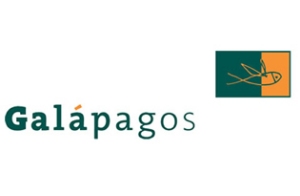 Developmental stage Galapagos NV is initiating its first phase 1 study to evaluate a CFTR targeted therapy for the treatment of cystic fibrosis (CF) called GLPG1837. The company is assessing a novel potentiator expected to help CF patients with class III/IV mutations, such as G551D. In addition, when combined with the corrector GLPG2222, it may also be able to treat patients with the most common CF mutation, F508del. The initiation of the trial will enable a $10 million milestone payment from AbbVie, a company that is collaborating with Galapagos on the development of the therapy.
Developmental stage Galapagos NV is initiating its first phase 1 study to evaluate a CFTR targeted therapy for the treatment of cystic fibrosis (CF) called GLPG1837. The company is assessing a novel potentiator expected to help CF patients with class III/IV mutations, such as G551D. In addition, when combined with the corrector GLPG2222, it may also be able to treat patients with the most common CF mutation, F508del. The initiation of the trial will enable a $10 million milestone payment from AbbVie, a company that is collaborating with Galapagos on the development of the therapy.
The phase 1 clinical study will be focused on the assessment of safety, tolerability and pharmacokinetics of both oral single and multiple ascending doses of the drug. The study is designed as randomized, double-blind, placebo-controlled and single center, and is going to enroll about 40 healthy participants in Belgium. In the first stage, the research team will evaluate single ascending doses of GLPG1837, while in the second stage, the volunteers will receive daily doses of the compound over a 14-day-period. The company is expecting to present topline results during the second half of the next year.
“GLPG1837 forms the first part of our strategy to develop novel and best-in-class therapies for CF. We are developing GLPG1837 as planned, with the Phase 1 study now initiated, and a backup potentiator well advanced,” explained the chief scientific officer of Galapagos, Piet Wigerinck. “This is Galapagos’ tenth candidate drug program to initiate Phase 1 clinical studies, a landmark achievement for our R&D team.”
[adrotate group=”3″]
Galapagos began its efforts to find a treatment for CF in 2005 and has remained focused on developing novel modes-of-action for treating the disease. The company has been working on a cystic fibrosis transmembrane conductance regulator (CFTR) targeted therapy, since the chronic and debilitating disease is caused by a defect in the gene that encodes the protein, which in turn is responsible for the regulations of bodily fluids such as sweat, mucus, and digestive juices.
The company aims to fulfill an unmeet need for CF treatments, since, not only is there no cure for the disease, but also it affects about 70,000 people worldwide, leading to a shortened lifespan, as the median age of survival is in the late 30s. The symptoms, which include lung infections, sinus infections, poor growth, and diarrhea, are often treated with antibiotics and other drugs. However, research is being conducted based on the combination of a corrector to restore the mutation and a potentiator to allow efficient opening of the CF channel.
Galapagos has been working in collaboration with AbbVie since September 2013 to enhance the development and commercialization of oral drugs for the treatment of the main CF mutations. The terms of the agreement established an upfront payment of $45 million from AbbVie to Galapagos. Once successful the drug’s clinical development and phase II study are complete, AbbVie will become responsible for the phase III clinical trial. Galapagos is still eligible to receive up to $360 million regarding additional payments that may include developmental and regulatory milestones, sales milestones upon the achievement of minimum annual net sales thresholds and additional double-digit royalty payments on net sales.

